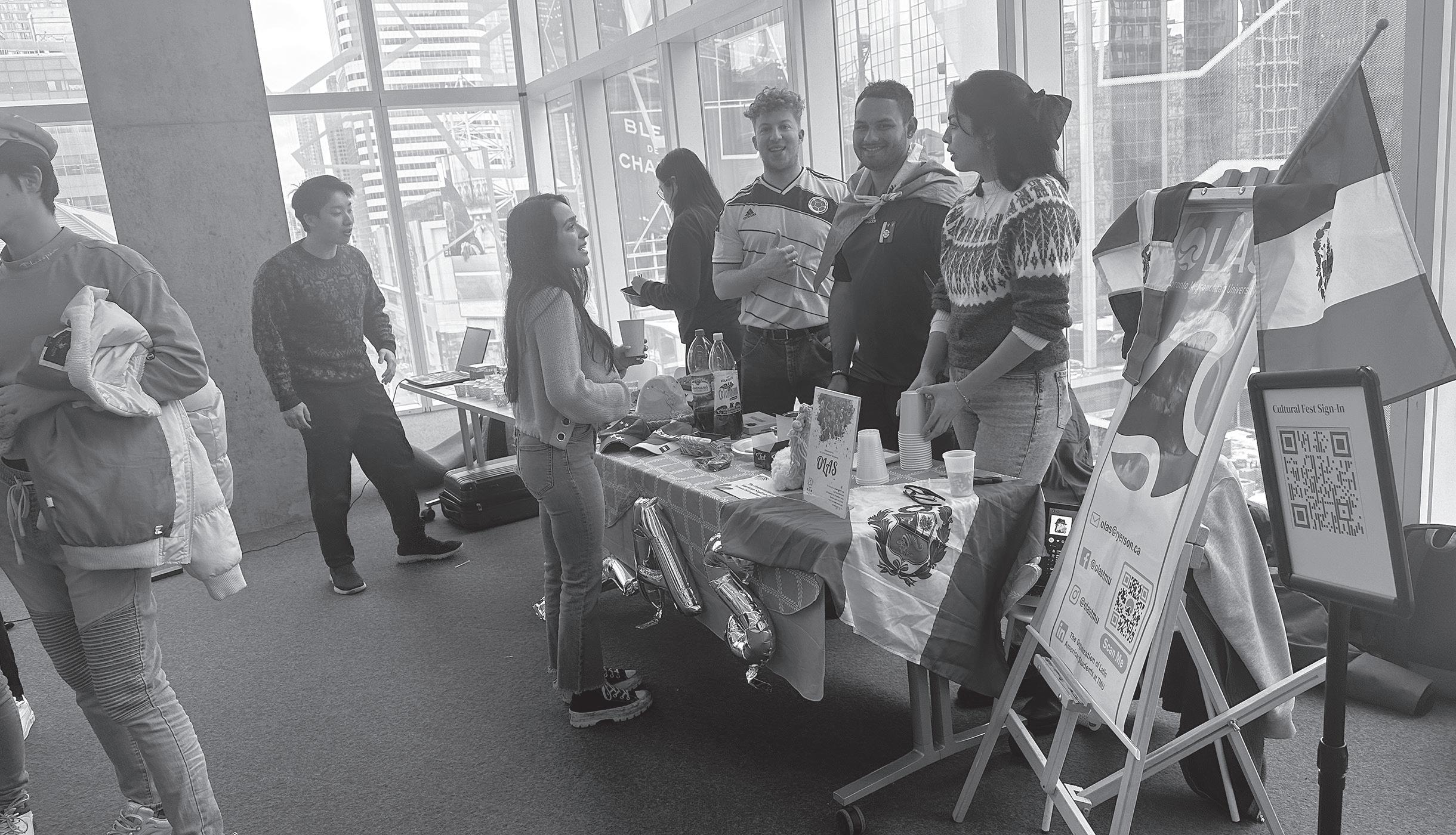
3 minute read
TMU set to introduce new wellbeing strategy
from Vol 56 Issue 19
By Joshua Chang
For the first time since 2018, Toronto Metropolitan University’s (TMU) Mental Health and Wellbeing Committee (MHWC) plans to update its strategies to support staff and students on campus.
Advertisement
In a statement to The Eyeopener, the university said the MHWC launched its new strategic planning process in January after reflecting on the previous strategy and gathering information about students’ current mental health.
The committee announced its plans to update their strategies on the official TMU website stating that they aim to create a flourishing university community that promotes mental health and wellbeing for all members to help them succeed.
As the development of the new strategy is underway, students think it’s much needed. Smiksha Singla, a fourth-year creative industries student and the president of the Society of the Creative School, noticed student progression at TMU had changed significantly since the COVID-19 pandemic.
She said even upper-year students are learning to navigate university-life for the first time.
“Even our seniors are kind of like freshmen,” Singla said.
“How can one adapt so fast? There are so many people and campus is bustling again but I’m not as comfortable as I was in 2019,” she said regarding what she’s seen among TMU students who are back on campus this year.
In their announcement, MHWC discussed the effects the pandemic had on students’ mental health and how it “both exposed and exacerbated a mental health crisis that was well underway.”
Statistics Canada reported that in the spring of 2021, one in four Canadians were experiencing a mental illness—a critical difference from one in five Canadians in the fall of 2020.
Some students agree that the transition from pandemic-life back to in-person learning has had a severe impact on their mental health.
Jean Lee, a second-year graphic communications management student says the transition out of the pandemic has been extremely difficult for her.
“Sometimes all we can do is cry… and it makes it worse when you don’t know if they’re arrested [or] if they’re being killed with no news,” he said. The three-day event concluded on International Women’s Day on March 8, with a discussion led by Iranian panelists about women of the Iranian revolution. This event, which bolstered the highest turnout of the week, featured a live band later in the evening that performed revolutionary songs.
“Most of the songs that were playing last night were music coming from the revolution,” Reybod said. “People [have been] coming up with these songs that are more emotional and I think that was a really good way to connect with our attendees.”
The event room on the second floor of the studio was dimly lit and packed with Iranian students from universities across the Greater Toronto Area as an acoustic band played for the intimate crowd who sang along to emotion-filled anthems. “I’m emotional and happy that we had our friends here with us. I think all of us needed this kind of event, to get reunited again,” said Hosseini. Iranian panelist and TMU English professor, Nima Naghibi, said the event was incredible and much needed as TMU hadn’t shared that much support or information since the uprisings.
Naghibi’s work focuses around the intersection of Western feminist movements with Iranian feminist movements in the 20th century but coming from an Iranian background motivates her work as well.
Naghibi encouraged the international community to come together during this time. “If we all work together collaboratively, across borders, across nations, across all kinds of differences and learn to see each other as allies, then there’s some potential for real change.”
For more info Instagram @TMUBEOURVOICE
“I feel like I’m more mentally drained,” Lee says. “This is the first time I have classes that are all inperson, with in-person exams and midterms, so I feel like I was more on top of my game during COVID.”
Lee, who had also noticed a particular decline in the mental health of her peers, said counseling sessions would be beneficial for students’ mental health and wellbeing on campus.
“I’ve talked to a lot of friends and they think it’s been very hard to transition,” she says. “Having a weekly session or even monthly sessions for certain things and certain events have been very helpful to a lot of them.”
The MHWC’s 2018 Terms of Reference, which outlines the committee’s purpose and vision back when it started, states that TMU students who were surveyed regarding their mental health acknowledged that “mental health and wellbeing issues have impacted their academic outcomes.”
In the same statement to The Eye, the university said “We are currently in the process of gathering student input and recommendations that will be considered in the next iteration of the strategy, which we aim to have completed in the summer.”
Read more at theeyeopener.com










